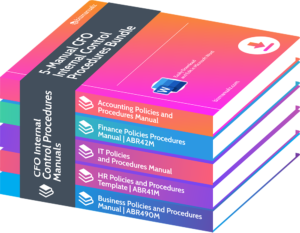What is The Difference Between Public and Private Accounting?

Public and private accounting are different fields in accounting. Public accounting involves services like audit, tax, and consulting for clients. Whereas, private accounting deals with internal financial matters of companies. What is the difference between public and private accounting?
Public and Private Accounting
Public accountants work for external clients. They conduct audits and help with financial statements, tax planning, and consulting to improve efficiency. Private accountants handle tasks like making financial statements, managing budgets, analyzing costs and revenue, and adhering to regulations. They help management make smart business decisions using accurate financial data.
Public and private accountants may have similar qualifications, yet their roles vary due to the work environment. Public accountants have to deal with various industries, clients, and complex financial issues. Private accountants usually specialize in one industry or company’s finances. So, if you’re considering one of these paths, think about your career goals, work-life balance, and salary. Then, dive into the thrilling world of accounting!
Definition of Public Accounting
Public accounting is the branch of accounting that looks after giving financial services to public companies, government agencies, and non-profit organizations. It involves preparing, analyzing, and auditing financial statements for accuracy and following relevant rules.
Public accountants provide a vital service. They examine their clients’ financial documents. They offer support on tax planning, budgeting, and investing. They also assess the accuracy and fairness of financial reporting by organizations, so stakeholders can make wise decisions.
Public accounting is different from private accounting. An important difference is that public accountants serve many clients, while private accountants usually just work for one company or organization. Public accountants have a broader job. They work with different businesses and industries, which gives them diverse experiences.
To be successful in public accounting, you need strong analytical skills and knowledge of financial regulations. Additionally, staying up-to-date with industry trends and technological advances can help you work effectively in an ever-changing landscape.
Definition of Private Accounting
Private accounting is about managing the money of one entity. It’s different from public accounting, which deals with many customers. a private accountant works for just one organization and looks after its finances. They handle lots of duties, for example, budgeting, financial reports, tax plans, and internal audits. They look at the company’s money to figure out risks and possibilities, and offer ways to increase growth.
Private accounting is special because it allows accountants to completely understand a company’s finances. This helps them give the right guidance for that organization.
Pro Tip: Private accountants should stay up-to-date with rules and tech. This way, they can give accurate financial advice and help their organization succeed.
Differences between Public and Private Accounting
Public and private accounting have distinct features that set them apart.
Differences in Public and Private Accounting
Let’s examine their variations through a comparison:
| Aspect | Public Accounting | Private Accounting |
|---|---|---|
| Purpose | Serve the public by providing audits, tax services, and consulting. | Serve private companies by delivering financial statements, cost analysis, and budgeting. |
| Clients | Government agencies, nonprofits, publicly traded companies. | Private corporations, individuals, partnerships. |
| Regulatory Oversight | Subject to strict regulations from government bodies like SEC and PCAOB. | Compliance with generally accepted accounting principles (GAAP) is necessary but not as regulated. |
| Financial Statements | Must follow Generally Accepted Accounting Principles (GAAP) and International Financial Reporting Standards (IFRS). | Can follow GAAP or other accounting standards if no specific regulations apply. |
| Compensation | Typically salaried employees with potential for partnership or leadership roles. | Can be salary-based or work as independent consultants, charging fees for services rendered. |
Further details to note include the historical significance:
Public accounting emerged as a profession in the early 20th century, driven by the need for reliable financial information due to major financial scandals. The Securities Exchange Act of 1934 required public companies to provide audited financial statements, contributing to the growth of public accounting firms.
Private accounting has existed for hundreds of years, primarily serving the accounting and finance needs of private businesses, individuals, and partnerships. However, the profession has evolved to adapt to modern requirements, such as compliance with relevant accounting standards and the increasing need for financial analysis and decision-making support.
These differences are crucial to understanding the roles and responsibilities of public and private accountants in today’s financial landscape.
Focus of Work: In public accounting, you’re balancing other people’s books, while in private accounting, you’re praying no one finds your hidden expenses.
Focus of Work
Public and private accounting have distinct focuses. Let’s explore the differences!
Public Accounting
-
- Role – Public accountants offer services like auditing, tax consulting, and compliance to external clients.
- Work Environment – They work in accounting firms with tight deadlines for clients.
- Clientele – They concentrate on serving clients from different industries and sectors.
- Confidentiality – Public accountants must keep client info private while following professional ethics and standards.
Private Accounting
-
- Role – Private accountants manage financial matters for one company or organization.
- Work Environment – They mostly work inside a company’s finance department with fixed deadlines for financial reporting.
- Clientele – Their main job is to serve their single employer or organization.
- Confidentiality – Private accountants have access to confidential company details and must keep them secret in the organization.
Moreover, Sarah’s story needs to be spotlighted. She is an experienced accountant who moved from public to private accounting. Sarah was drawn to private accounting because of the stability and long-term growth it offers. Now she plays a key role in managing her company’s financial records, making sure the numbers are precise for internal decision-making. This story shows how someone can find satisfaction by matching their career goals with the special aspects of each accounting specialization.
Clientele
Public and private accounting have several distinguishing features. One such difference is the kind of people they serve. Let’s look closer!
Public accountants offer services to a wide range of customers. This includes individuals, businesses, large enterprises, government agencies and not-for-profit organizations. Such services include tax preparation, audit help, financial advice and more.
In contrast, private accountants typically work for one particular client or business. These clients tend to be corporations, partnerships, or not-for-profit groups. Private accountants are chiefly concerned with handling the financial records and reporting within their employer. Budgeting, cost analysis and internal audits are also important duties.
One key difference between public and private accounting is their varied list of clients. Public accountants get to work with many different types of people and entities. This offers them a great chance to gain extensive experience and knowledge with multiple financial situations. On the other hand, private accountants focus on just one client or company.
This information comes from Investopedia.com. Now you know more about how public and private accounting differ in terms of their clientele!
Financial Statements
Financial statements are vital for both public and private accounting. They offer a clear image of a company’s financial situation and performance. They assist stakeholders in making informed decisions. a good set of financial statements can give information on a company’s profitability, liquidity, solvency, and financial status.
Let’s observe the table below to understand the importance of financial statements:
| Public Accounting | Private Accounting |
|---|---|
| General Public | Company Management, Investors |
| Annual Report | Internal Financial Statements |
| Standardized | Varied based on need |
| Required by law | Less regulated |
Public accounting requires financial statements like annual reports that follow standard formats and must publicly disclose specific details. On the other hand, private accounting focuses on internal reporting and investor needs. Private accounting is less regulated, so financial statements can be adjusted to suit management and investor’s expectations.
Now, let’s take a real-life example to show the practical significance of financial statements. Suppose a startup needs growth capital from potential investors. The founder creates comprehensive financial statements that show past performance, assess market opportunity, make projections, and analyze risks. By seeing these documents, investors can trust the startup’s financial standing and vision. Consequently, they invest in the company’s projects.
To summarize, financial statements are indispensable for public and private accounting. They help stakeholders assess a company’s performance accurately and decide whether to invest or do business with them.
Regulatory Requirements
Regulatory requirements for public and private accounting are quite different. Let’s get into the specifics right away.
See below for a comparison of the regulatory requirements between public and private accounting:
| Regulatory Requirements | Public Accounting | Private Accounting |
|---|---|---|
| Licensing | Certified Public Accountant (CPA) certification | No mandatory license |
| Financial Reporting | Compliance with Generally Accepted Accounting Principles (GAAP) | More flexibility, reporting can be based on internal guidelines |
| Auditing | Required for publicly traded companies | Optional, not mandated |
Let’s delve deeper.
Public accounting requires CPA certification to practice, while private accounting does not. Financial reporting is stricter for public accountants that have to follow GAAP. Private accountants can use internal guidelines instead. Auditing is compulsory for publicly traded companies, but private firms can skip it.
For successful compliance, professionals should:
- Stay educated: Both public and private accountants should stay on top of new regulations.
- Implement strong internal controls: Private accountants should set up sound control systems to reduce financial risks and bolster accuracy.
- Consider external audits: Private companies can benefit from voluntary external audits to increase transparency and credibility.
By using these tips, professionals can meet regulatory expectations and uphold integrity in accounting processes.
Example of Public Accounting
Public accounting is a practice of providing financial services such as auditing, tax preparation and analysis, financial statement analysis, and management consulting to individuals, organizations, and governments. Certified Public Accountants (CPAs) offer these services to many clients from different industries.
Examples of public accounting include:
- Auditing: Conducting independent financial audits to check accuracy and reliability of financial statements.
- Tax Preparation: Helping individuals and businesses prepare their tax returns while following laws and regulations.
- Financial Analysis: Examining financial data to evaluate an organization’s performance and give insights for decision-making.
- Management Consulting: Offering advice on managerial aspects like improving operational efficiency, implementing strategies, and optimizing resources.
Also, public accountants have to provide assurance services by confirming the accuracy and integrity of financial information. Plus, they may help with mergers and acquisitions, risk assessment, internal control evaluation, and forensic accounting.
It is significant to note that public accountants must comply with professional standards and ethical guidelines set by regulatory bodies such as the American Institute of Certified Public Accountants (AICPA) or other local accounting associations.
The true history of public accounting goes back centuries when “auditors” were hired to verify financial records. With commerce expanding, the need for reliable professionals to examine business accounts grew, resulting in the formation of guilds and associations to oversee auditing practices. As corporations emerged, public accounting evolved into a specialized and regulated profession.
Example of Private Accounting
Private accounting involves businesses hiring accountants internally to manage their financial records and transactions. This is very important for accurate bookkeeping and financial reporting within the company.
Let’s look at a practical example of private accounting:
| Example Name | Company | Role |
|---|---|---|
| John Smith | ABC Corp | Senior Accountant |
| Sarah Davis | XYZ Inc | Financial Analyst |
| Michael Johnson | QRS Co | Tax Consultant |
John Smith works as a senior accountant at ABC Corp. His job is to manage day-to-day financial activities. Sarah Davis is a financial analyst at XYZ Inc. She looks at data and provides advice to help with strategic decisions. Michael Johnson is a tax consultant at QRS Co. He specializes in tax planning and compliance.
Private accounting offers many roles, like auditing, taxation, and management accounting. That table only shows three roles. Private accounting is very important. It provides essential financial information that businesses need to make decisions.
Difference Between Public and Private Accounting
Public and private accounting are different. Public accounting is about providing services to clients, such as auditing financials and taxes. Private accounting is inside one company or organization, handling its finances.
Public accountants work for firms, checking for errors, advising on tax and money management, and adhering to regulations. They must be analytical and have good communication skills.
Private accountants are in-house. They do budgeting, cost and expense analysis, reports for management, and payroll. They must adapt to changing conditions and have advanced industry knowledge.
To succeed in either field, professionals should develop their skills and qualifications with courses or certifications. For instance, CPA or CMA can help get jobs and show commitment to growth.
Frequently Asked Questions
Q: What is the difference between public and private accounting?
A: Public accounting refers to the practice of providing accounting services to external clients, such as individuals, businesses, or government agencies. Private accounting, on the other hand, involves performing accounting tasks for a single organization, commonly in-house, serving the internal needs of the company.
Q: What are the key responsibilities of public accountants?
A: Public accountants offer a range of services, including auditing, tax preparation, financial consulting, and forensic accounting. Their role typically involves assessing and verifying financial records, issuing opinions or reports for clients, and ensuring compliance with relevant laws and regulations.
Q: What are the primary tasks of private accountants?
A: Private accountants are mainly responsible for managing a company’s financial records, preparing financial statements, conducting internal audits, and handling budgeting and cost management. They work closely with the organization’s management and stakeholders to support decision-making and provide financial insights.
Q: Which industries or sectors commonly employ public accountants?
A: Public accountants can work in various industries, including financial services, consulting firms, government agencies, non-profit organizations, and public accounting firms. They often serve a diverse range of clients and may specialize in specific areas such as taxation or auditing.
Q: In which sectors do private accountants typically find employment?
A: Private accountants are employed by companies across all sectors, including manufacturing, retail, healthcare, technology, hospitality, and many others. These accountants play a crucial role in ensuring the financial stability and success of their respective organizations.
Q: Can someone transition from public accounting to private accounting?
A: Absolutely. Many accountants begin their careers in public accounting to gain comprehensive experience across different industries and clients. As their careers progress, they may choose to transition to private accounting and work exclusively for a single organization.

















Leave a Reply